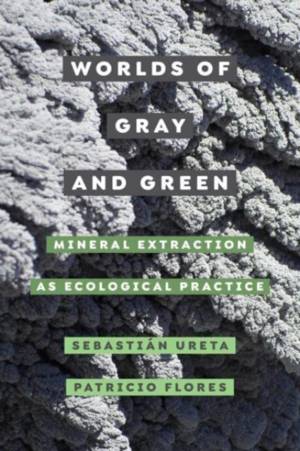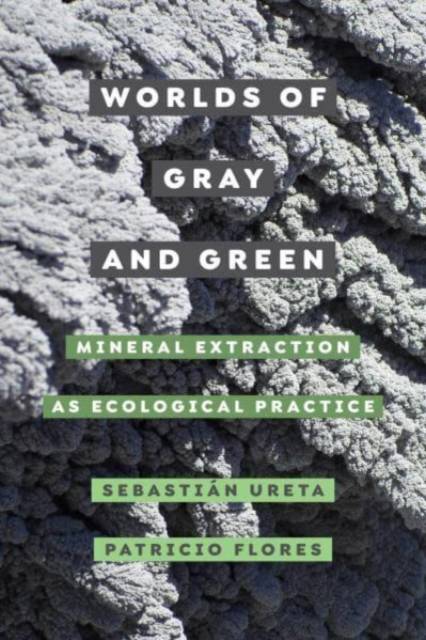
Je cadeautjes zeker op tijd in huis hebben voor de feestdagen? Kom langs in onze winkels en vind het perfecte geschenk!
- Afhalen na 1 uur in een winkel met voorraad
- Gratis thuislevering in België vanaf € 30
- Ruim aanbod met 7 miljoen producten
Je cadeautjes zeker op tijd in huis hebben voor de feestdagen? Kom langs in onze winkels en vind het perfecte geschenk!
- Afhalen na 1 uur in een winkel met voorraad
- Gratis thuislevering in België vanaf € 30
- Ruim aanbod met 7 miljoen producten
Zoeken
Worlds of Gray and Green
Mineral Extraction as Ecological Practice Volume 11
Sebastián Ureta, Patricio Flores
€ 50,95
+ 101 punten
Uitvoering
Omschrijving
The Anthropocene has arrived riding a wave of pollution. From "forever chemicals" to oceanic garbage patches, human-made chemical compounds are seemingly everywhere. Concerned about how these compounds disrupt multiple lives and ecologies, environmental scholars, activists, and affected communities have sought to curb the causes of pollution, focusing especially on the extractive industries. In Worlds of Gray and Green, authors Sebastián Ureta and Patricio Flores challenge us to rethink extraction as ecological practice. Adopting an environmental humanities analytic lens, Ureta and Flores offer a rich ethnographic exploration of the waste produced by Chile's El Teniente, the world's largest underground mine. Deposited in a massive dam, the waste--known as tailings--engages with human and non-human entities in multiple ways through a process the authors call geosymbiosis. Some of these geosymbioses result in toxicity and damage, while others become the basis of lively novel ecologies. A particular kind of power emerges in the process, one that is radically indifferent to human beings but that affects them in many ways. Learning to live with geosymbioses offers a tentative path forward amid ongoing environmental devastation.
Specificaties
Betrokkenen
- Auteur(s):
- Uitgeverij:
Inhoud
- Aantal bladzijden:
- 162
- Taal:
- Engels
- Reeks:
Eigenschappen
- Productcode (EAN):
- 9780520386297
- Verschijningsdatum:
- 31/05/2022
- Uitvoering:
- Paperback
- Formaat:
- Trade paperback (VS)
- Afmetingen:
- 148 mm x 226 mm
- Gewicht:
- 226 g

Alleen bij Standaard Boekhandel
+ 101 punten op je klantenkaart van Standaard Boekhandel
Beoordelingen
We publiceren alleen reviews die voldoen aan de voorwaarden voor reviews. Bekijk onze voorwaarden voor reviews.









